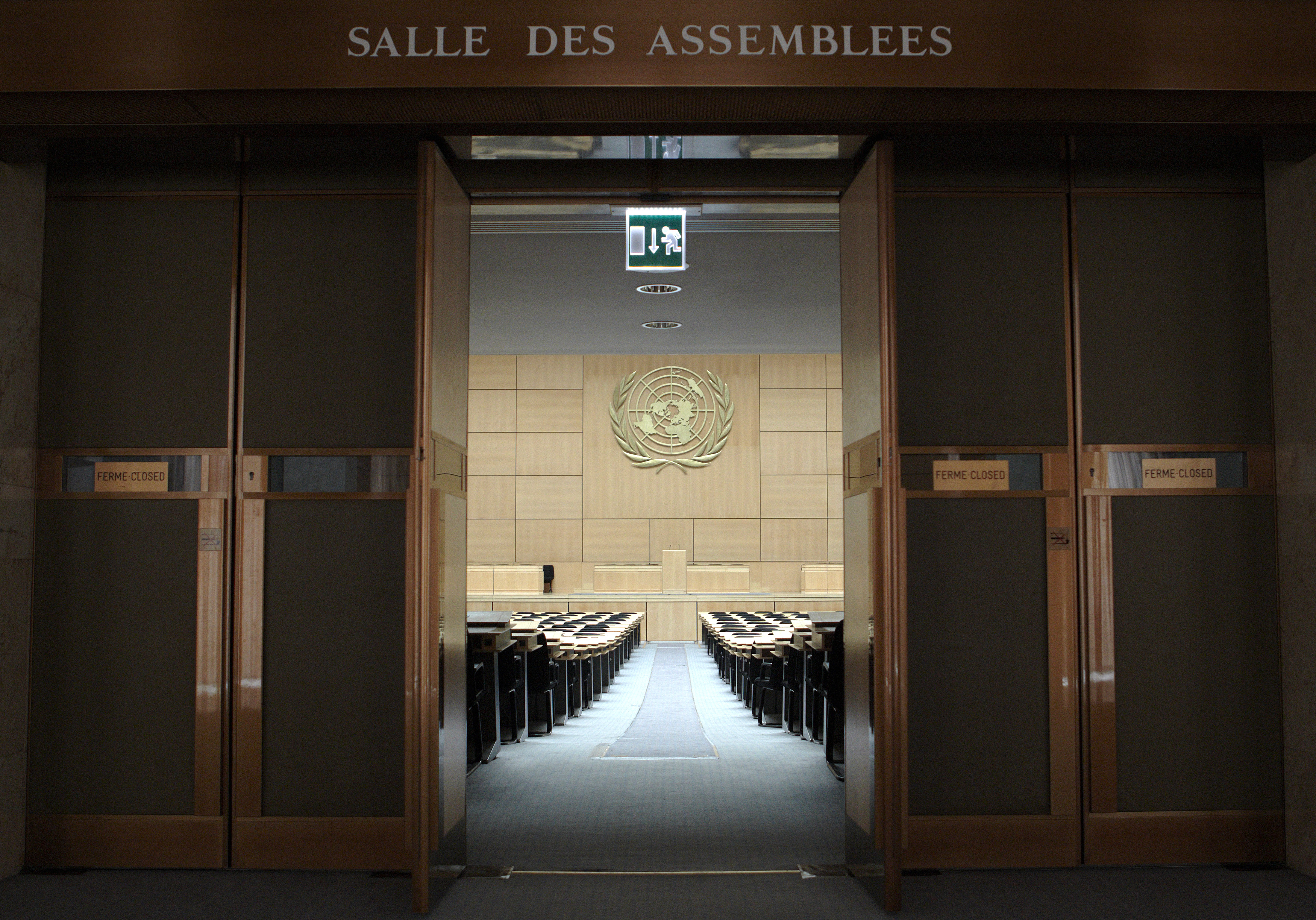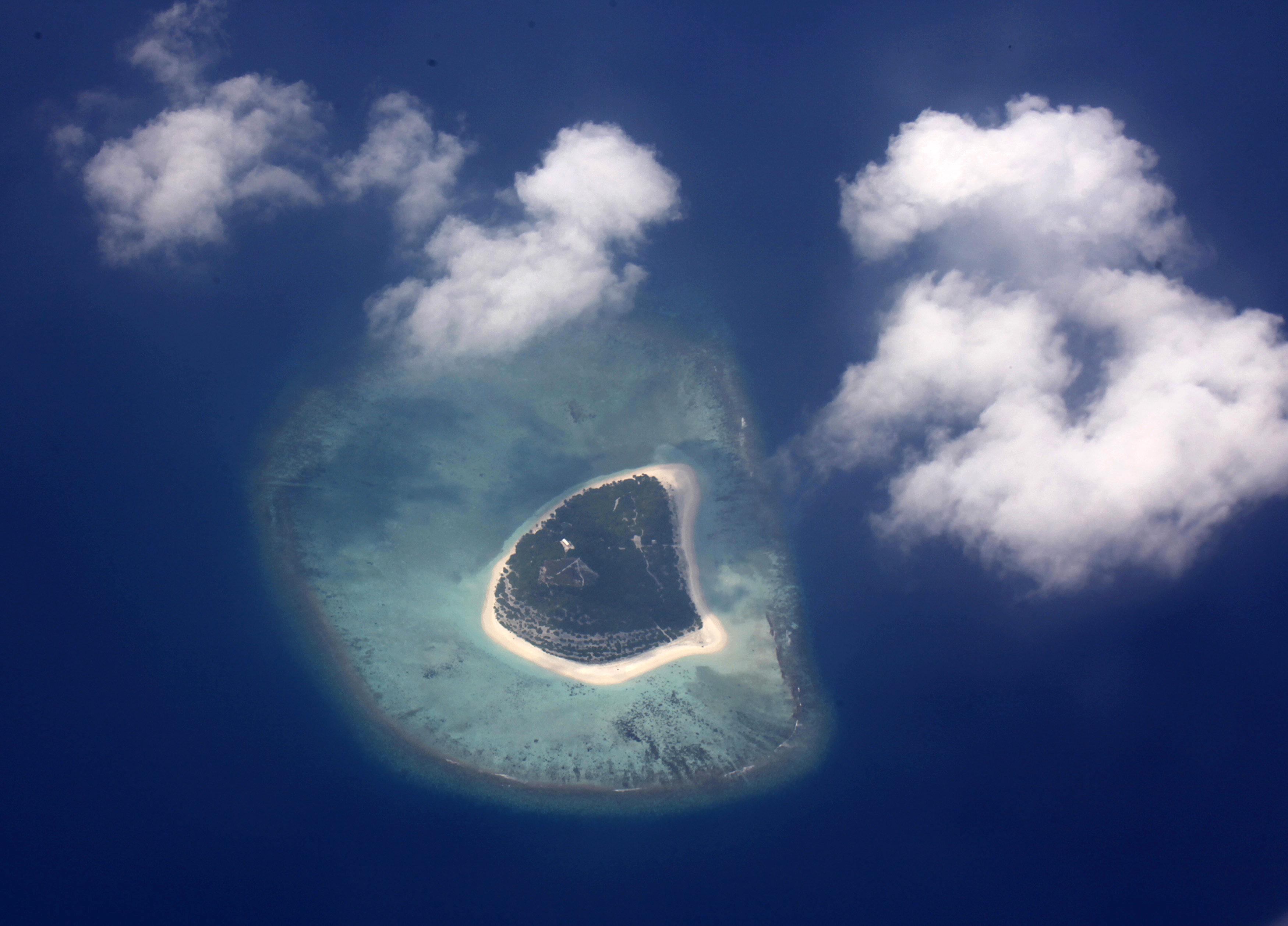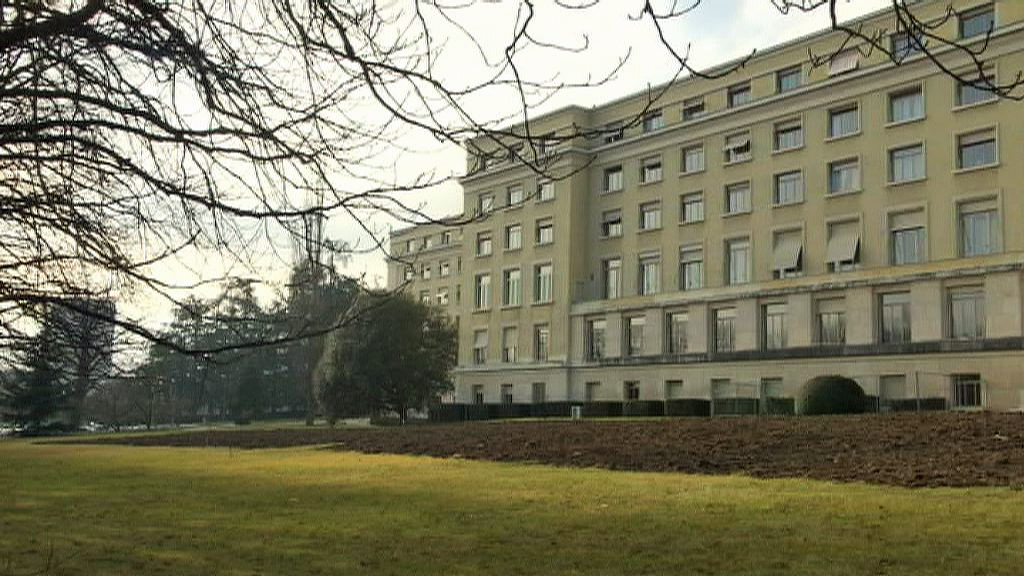International Geneva needs a “real boost”

International Geneva is described as a sprawling mansion that needs modernising. But the challenges are daunting: budgetary pressures, fluctuating exchange rates, insecurity, housing and office shortages, and an urgent need for renovation.
Former Swiss ambassador François Nordmann tells swissinfo.ch the federal and cantonal authorities need a much more proactive strategy to address these and other issues.
swissinfo.ch: Before Didier Burkhalter took over from Micheline Calmy-Rey as Swiss foreign minister at the start of 2012, you wrote an editorial in Le Temps newspaper warning of “clouds darkening the future of International Geneva”. Are you still as gloomy?
François Nordmann: There was some uncertainty over the handover and changes at the head of the Swiss foreign ministry due to the fact that Calmy-Rey had very shrewdly invested a great deal of time and effort in International Geneva.
I think today we can all be reassured. Burkhalter’s first moves have been to pursue Calmy-Rey’s activities. I don’t think there’ll be any new academic or Global Humanitarian Forum-like initiatives, but Switzerland will do its utmost to develop and consolidate what exists – which is already quite a sizeable task.
swissinfo.ch: What are some of the main challenges he and the Geneva authorities are facing?
F.N.: One of the main problems for International Geneva is partly linked to the strong Swiss franc, with organisations defending themselves by relocating or reducing jobs.
Another problem that everyone says is a priority is insecurity, which has got worse. For local residents, there has been an increase [in the number of incidents], and every week there are cases of diplomats or their family members being attacked. That’s new. Geneva is safer than many other cities, but it’s much less safe than it was ten years ago.
Then there is the question of housing, which is not something we can resolve easily. But it’s a growing concern given the competition between the public sector and multinationals, which represent one quarter of Geneva’s gross domestic product.
And then there is infrastructure. Five years ago, we promised some 20 diplomatic missions from less-developed countries which have been unable to come here that we would build them offices and residences. This has still not been done.
We need to accelerate things as it could damage Geneva’s ability to hold conferences… all 193 UN members should be present.
swissinfo.ch: The cost of renovating existing buildings – and who should pay – has emerged after the release of a report by parliament’s finance delegation. How serious is this issue?
F.N.: This is the first time parliament seems to have become aware of this issue and declared publicly that we will have to spend SFr1 billion ($1.09 billion) consolidating existing International Geneva buildings, the major part for the Palais des Nations.
The assumption is that Switzerland will be asked to contribute towards renovating these buildings – beyond its normal budget contribution, which haven’t been properly maintained.
Bern’s initial reflex is to say the organisations are the owners of the buildings, agencies like the International Labour Organization (ILO) or the World Health Organization (WHO), so it’s not Switzerland’s business. Switzerland handed over the Palais to the United Nations, which should have made the necessary reserves for the future but didn’t.
Meanwhile, the directors of organisations argue that they receive money from governments to spend as economically as possible on programmes and not for building up financial reserves.
Member states are not convinced. They say Switzerland, which says it earns some SFr3-4 billion a year as host nation of international organisations, should make a gesture, especially as the UN needs only one headquarters.
This money has to be found. It’s not a huge sum but it’s not small either, especially as budgets are being reduced. This has become a priority now with the finance delegation asking for a strategy report.
swissinfo.ch: With the Conference on Disarmament still deadlocked after 16 years and the World Trade Organization (WTO) also at an impasse, are you worried about a drop in diplomatic activities in Geneva?
F.N.: There is no risk of a reduction but rather stagnation. The arrival of the WTO gave Geneva a big boost. Numerous missions were established and there were more meetings, but the WTO is now blocked.
As for disarmament, there is not a lot that can be done. It’s a highly political issue. Geneva is entirely dependent on the political developments surrounding China, Pakistan and the US. There is no energy to come up with another body – a specialised General Assembly or expert group. But any solution will inevitably be to Geneva’s disadvantage.
Elsewhere activities are developing normally in Geneva. The WHO was in a crisis recently and the ILO needs a breath of fresh air, but these are normal phenomena. Organisations like the International Telecommunication Union (ITU) or the World Intellectual Property Organization (WIPO) are developing very well.
swissinfo.ch: It could be argued that the Swiss authorities have rested on their laurels these past few years rather than addressing these issues.
F.N.: Switzerland is aware of these problems but has no solutions. It’s a question of priorities and resources. We don’t want to make special efforts for the international community so we just keep things ticking along as usual and try to offer reassurance. But evidently that’s no longer sufficient.
I’m for a more proactive, offensive policy, especially from the Geneva authorities. Geneva should get more interested in what happens inside the organisations and the state should be more present and have a uniform policy.
They are asking questions and developing a strategy and relations with the federal authorities, but what is missing is a reflection on the multilateral system to know what kind of ideas we can contribute to shaping the 21st century.
The canton should also give greater priority to International Geneva. There are two services which are more or less in competition. Lots of routine things are done very well, but what’s missing is a real boost to the whole thing.
Geneva is home to the headquarters of 32 international organisations, such as the WHO, the WTO and the ICRC. “International Geneva”, as it is known, is worth around SFr3 billion a year to the canton.
In all, some 40,000 international diplomats and civil servants are based in Geneva; in addition there are around 2,400 staff working for 250 non-governmental organisations. Around 8,500 staff work for the United Nations in Geneva, which is the largest concentration of UN personnel in the world. There are also 169 permanent diplomatic missions to the UN.
Swiss Foreign Minister Didier Burkhalter: “Switzerland plans to reinforce the competitiveness of International Geneva over the next few years… The federal authorities and the canton want to improve the welcome policy and universal character of International Geneva.” (March 2012)
Isabel Rochat, Geneva minister: “International Geneva is like a magnificent mansion; you wonder what kind of renovation is needed to ensure it can function in the 21st century… A simple coat of paint is not enough. We need to work from top to bottom…do we dare to be visionary to offer International Geneva a breath of fresh air?” (June 2011).
Dante Martinelli, Swiss ambassador to the UN in Geneva: “International organisations that are owners of the buildings are responsible for their maintenance and renovation. As a member state, Switzerland has always encouraged owners of buildings to set aside financial reserves for renovations but this is not always done by organisations. The financing of renovations will require some innovative engineering in the future.” (May 2012).
Born in 1942, Nordmann studied international relations at Fribourg and Geneva. He was a Swiss diplomat from 1971 to 2007.
He worked as diplomatic secretary to cabinet ministers Pierre Graber and Pierre Aubert, advisor to the Swiss observer mission to the United Nations (1980-1984), ambassador to Guatemala and five other Central American countries, Swiss permanent delegate to Unesco (1987) and director of international organisations at the Swiss foreign ministry (1992).
He was later Swiss ambassador to Britain (1994-1999), head of the Swiss permanent observer mission to the UN in Geneva (2000-2002), ambassador to France (2004) and Monaco (2006). Since 2007 he has worked as a consultant and political analyst.

In compliance with the JTI standards
More: SWI swissinfo.ch certified by the Journalism Trust Initiative



You can find an overview of ongoing debates with our journalists here. Please join us!
If you want to start a conversation about a topic raised in this article or want to report factual errors, email us at english@swissinfo.ch.